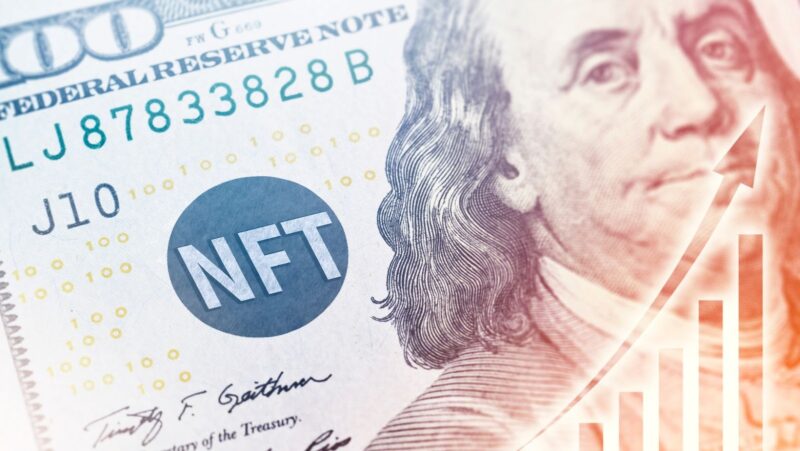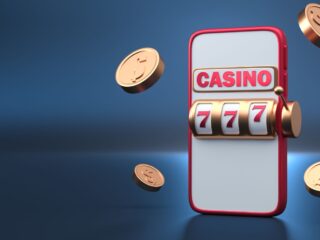
Non-fungible tokens (NFTs) and blockchain technology have shaped a new kind of economy in the gaming industry. NFTs are digital assets that are unique, not interchangeable and indivisible, similar to traditional physical goods. These tokens allow game developers to create digital props and collectibles that users can purchase or acquire in game, representing a decentralized approach to digital distribution. Blockchain technology is used for this type of digital transaction.
The gaming industry is expected to grow significantly from introducing these innovations. According to a statement from Square Enix President Yosuke Matsuda, “in 2021, I believe that non-fungible tokens (NFTs) and blockchain technologies will become major trends.” The proliferation of NFTs and blockchain offer avenues for gaming companies to monetize their products beyond the conventional model by unlocking new opportunities such as gameplay rewards and virtual goods trading marketplaces.
This article will provide an overview of how NFTs and blockchain technology are set to revolutionize the gaming industry by breaking down both concepts in detail; examining present challenges; exploring potential benefits on both ends, they can offer business owners; as well as providing insight into recent developments by both organizations who are pushing forward with their implementation strategies to grow their competitive advantage over other players in the space.
President of Square Enix believes NFTs and blockchain tech will be a “major trend” this year
Non-fungible tokens (NFTs) are digital assets that are unique and not interchangeable. They are powered by blockchain technology, a secure, digital ledger of transactions that is transparent and immutable.
Recently, President of Square Enix, Yosuke Matsuda stated that he believes NFTs and blockchain technology will be a “major trend” this year.
Let’s examine these new technologies and how they might impact the gaming industry.
Defining NFTs
Non-fungible tokens (NFTs) are digital tokens that can represent digital assets, such as artwork, gaming characters, and in-game items. They are indivisible units of ownership on a blockchain that can be exchanged, bought, or sold on marketplaces. Unlike traditional fungible cryptocurrencies such as Bitcoin or Ethereum, NFTs can provide a way to own something fully and exclusively.
NFTs are associated with blockchain technology because they are stored on a distributed ledger, a public ownership registry. This means that data about the transaction is available for everyone—users and consumers alike—to view. In addition, their scarcity and individual ownership helps to create trust between buyers and sellers throughout the platform.
While NTFs have existed since 2017, they have recently gained increased recognition within the gaming industry, especially with the President of Square Enix predicting that they will be the “major trend” this year. He anticipates that NFTs will prove successful due to their scalability with mobile devices, ability to cut transaction fees by up to 95% compared to other methods of transactions like credit card payments, and ushering in brand new dynamic digital marketing opportunities for game companies.
Ultimately, there is potential for real money gaming with virtual currencies to become even bigger in 2021 with the help of smart contracts ensuring trust between developers and players, eliminating fraud risks through the guaranteed security measures created by blockchain technology.
Defining blockchain technology
Blockchain technology is a secure, distributed, digital ledger that records and stores every transaction that ever takes place on its network. It also stores a public record of all the data associated with each transaction. In traditional models, data is held in centralized systems prone to hacks, errors and manipulation. However, blockchain technology provides an immutable and trusted way to store data across computers in the decentralized form known as a “distributed ledger”.
Blockchain networks protect their data from tampering and other malicious activities using encryption technologies such as asymmetric cryptography or even zero-knowledge proofs. This type of system aims to provide an incorruptible digital platform for all transactions to take place in – such as those associated with NFTs (Non-fungible tokens). As the popularity of digital technology grows exponentially each year and new adoption rates across all industries skyrocket, blockchain could be a game-changer for many businesses looking to maximize efficiency and security within their systems through increased trustless collaboration.
NFTs are unique cryptocurrencies based on blockchain representing a particular item or asset like art or collectibles. Unlike traditional currencies that exist only as numbers on a computer’s hard drive or paper, NTFs can exist independent of any truly centralized authority because they are verified through smart contracts. This makes them ideal assets for gaming and other industries looking to keep track of valuable assets like land titles or music licenses.
Innovation around retailing assets such as virtual items and the emerging trend towards cryptocurrency payments has sparked new life into gaming industries worldwide – offering players access to experiences beyond their traditional boundaries. President Yuichi Wada from Square Enix agrees that both NFTs and Blockchain technology will have major ramifications for the gaming industry this year– granting players privacy in their transactions while still providing enhanced security measures against piracy; allowing users greater control over accessing digital goods; allowing profits from trades between gamers– creating incentives for creativity among developers; facilitating decentralized currency economies around video games; offering better proof-of-ownership options for scarce virtual items–as well as leveraging existing tools like QR codes/ scanning technology to simplify onboarding/ preventing misrepresentation by buyers/sellers.
Moreover, blockchain SEO, a concept known as blokpoint, is transforming how these technologies are discovered and utilized by ensuring optimal visibility and engagement within search engines, thus driving more traffic and interest towards blockchain-enabled gaming platforms.

NFTs and blockchain tech in the gaming industry
The President of Square Enix, Yosuke Matsuda, recently stated that NFTs and blockchain tech will be a “major trend” this year. This technology is expected to have a huge impact on the gaming industry.
In this article, we will look at how this technology will influence the gaming industry and explore how this technology could be utilized to bring a new wave of gaming experiences.
Benefits of NFTs and blockchain tech in gaming
Integrating blockchain technology and non-fungible tokens (NFT) into the gaming industry is expected to revolutionize how we play and share games. NFTs are digital assets stored on a blockchain ledger and are often used to represent items such as in-game assets or physical objects like artwork or collectibles. By giving individual items a unique identity that can be tracked, stored and sold digitally, NFTs can move virtual goods from one person’s account to another at a fraction of the cost compared to traditional methods. In addition, blockchain technology also enables increased privacy, security, transparency and ownership control over these digital assets.
In-game asset trading is expected to become easier and more efficient as developers integrate cryptocurrency solutions into games, significantly reducing payment processing costs for companies and speeding up customer transactions. This can open up new opportunities for game developers who wish to create virtual economies, incentivize players with digital tokens or accept cryptocurrencies as payment instead of fiat money. Furthermore, NFTs don’t just have applications within gaming but also extend into monetizing esports tournaments by tokenising individual in-game achievements for players or teams competing across a range of platforms or games.
There are other potential benefits of using NFTs within the gaming industry such as an improved gaming experience through the ability to unlock new content or level up faster with the use of microtransactions in some games coupled with additional payment options available with cryptocurrencies rather than relying solely on bank payments or using valid credit cards online. Additionally, there may be further potential applications such as allowing developers to issue virtual tickets for events which can be securely tracked across multiple platforms while still providing exclusive access rights only to those who purchased them which could significantly reduce ticket fraud risk associated with physical events like concerts.
President of Square Enix believes that NFTs and blockchain technology will be a “major trend” this year due its capability to bring benefits related not only to power but also accessibility across different sectors such as entertainment, social media, healthcare among many more areas; A perfect illustration of this is its combination when it comes down into gaming sector where it introduces newfound possibilities compared its once singular centralized approach before where you solely played video games on your own console without anyone else getting in between interactions regarding your transactions or gameplay mechanics through its distributed nature means what was once deemed impossible now becomes possible by having gatekeepers removed from entering gaming experiences making it infinitely easier for people overall thus greatly increasing its potential growth over time giving way new business models that would consequently contribute in boosting not only technological development but likewise help gamers interact better together leading towards more innovation coming forth daily thanks what this new system presents us with!
Challenges of NFTs and blockchain tech in gaming
Implementing non-fungible tokens (NFTs) and blockchain technology in the gaming industry is still in its infancy, with several challenges to overcome before becoming mainstream. For example, scalability continues to be an issue for blockchain applications, as transaction times and throughputs are relatively low compared to traditional technologies.
Network congestion also remains a problem for certain networks that use proof-of-work algorithms, leading to delays or even failed transactions. In addition, the cost of interacting with certain blockchains may be prohibitively expensive for some developers.
Furthermore, NFT technology is still subject to policy uncertainty on both the technical and legal front — what constitutes a transferable digital asset? Who owns in-game items? Is this different from copyright ownership? Security remains an issue; some platforms have insecure encryption protocols or inadequate permission models, allowing malicious actors to siphon off user assets. Finally, many gaming companies are reluctant to trust blockchain technology due to its immutability. Once data is written on the ledger it’s difficult (if not impossible) to change or delete it.
While these challenges may be obstacles for some organizations attempting to implement blockchain tech into their solutions, President of Square Enix Yosuke Matsuda believes that NFTs and blockchain technology will be a “major trend” in 2021 with many industries being able tap into the potential benefits it offers.

Examples of NFTs and blockchain tech in gaming
The President of Square Enix believes that NFTs (Non-Fungible Tokens) and blockchain technology will be a major trend in gaming this year. This technology has the potential to revolutionise gaming, offering an immutable and secure platform for digital assets. Examples of NFTs and blockchain technology can already be seen in the gaming industry, with large companies like Square Enix utilising these technologies for enhanced gaming experiences.
This article will explore how NFTs and blockchain technology are used in the gaming industry.
CryptoKitties
CryptoKitties is one of the original NFT projects and one of the first mainstream blockchain-based gaming applications. It allows users to purchase, collect, breed, and trade virtual cats on Ethereum’s blockchain. The Cryptokitties app was created by a Canadian game development studio called Axiom Zen in 2017.
Developers behind CryptoKitties designed the platform so that each virtual cat generated would be unique and owned exclusively by the user. Users can purchase CryptoKitties with cryptocurrency or fiat currency — and once purchased, they cannot be copied or copied by anyone else because of their NFT status on Ethereum’s public blockchain ledger. The development team behind this app has also committed to innovating new features regularly, ensuring users remain engaged with their experience.
CryptoKitties has become a major success in the NFT space and offers an engaging way for new users to get involved in digital asset ownership. On March 28th this year, Crypto Kitties hit a milestone of 10 million cats generated — each with unique attributes — making it the most successful crypto game, with over 1 million historic transactions recorded on its ledger. This success shows no signs of waning as more players are interested in crypto gaming this year.
Gods Unchained
Gods Unchained is a digital collectible card game and a popular example of an NFT-based game. Players compete using cards stored on the Ethereum blockchain, meaning the cards are immutable and can never be altered or duplicated without permission. This makes them perfect for trading, buying and selling in-game collectibles. The game also uses blockchain technology to allow players to prove ownership of their cards and ensure an equitable, transparent gaming environment with provably fair rewards and playing conditions.
The Gods Unchained digital card economies are growing rapidly, driven by rare item auctions/sales, sponsored tournaments with prizes in real currency or rare NFTs gifted away as part of promotional activities or competitive rankings. Examples of NFTs in the game include unique skins, special “shards” that change properties when interacted with alongside other cards, and powerful super rares obtained via series 1 or 2 packs. In addition, gods Unchained gives players all sorts of ways to interact with blockchain technology within their games, positioning it as an innovative player first use case for NFTs and blockchain technology within the gaming industry.
Decentraland
Decentraland is one of the most well-known NFTs and blockchain technology applications within the gaming industry today. It is a decentralized, 3D virtual world powered by Ethereum smart contracts. Players can purchase land to build on and engage in activities such as virtual gambling, commerce, and socializing — all using cryptocurrency such as Ethereum or Bitcoin.
Land owners can monetize their creations by selling them to other players in exchange for digital currency like ether.
On Decentraland’s platform, NFTs represent unique pieces of land or digital goods (items) held on the public ETH blockchain that users can own permanently. These items are implemented in Decentraland as scripts, ERC721 tokens, or LAND holdings. All activities within the platform are protected via smart contracts and tokenized assets which make all operations secure and transparent, while still allowing users complete privacy and control over their items/assets in-game exchanging them via peer-to-peer transactions at any time. As a result, there is no risk of fraudulent activity amongst players or developers when dealing with centralized systems such as those used by traditional video games. As such, it provides gamers with an unparalleled level of freedom and security when playing online games.
Conclusion
In conclusion, there is no doubt that the rapidly growing blockchain technology, combined with the emergence of non-fungible tokens (NFTs), has already begun to revolutionize the gaming industry in several ways. As President of Square Enix has indicated, 2021 is likely to be a very exciting year for gamers and developers alike thanks to the potential of this new technology.
Blockchain technology and NFTs offer improved security, simplified payment methods, tokenized digital artwork and collectibles, and more. These examples demonstrate that the gaming industry is increasingly adopting blockchain technology and its associated offerings with transformative implications. With increasing investment from industry giants such as Square Enix, NFTs and blockchain tech will likely continue to shape and advance the gaming industry in exciting ways.







